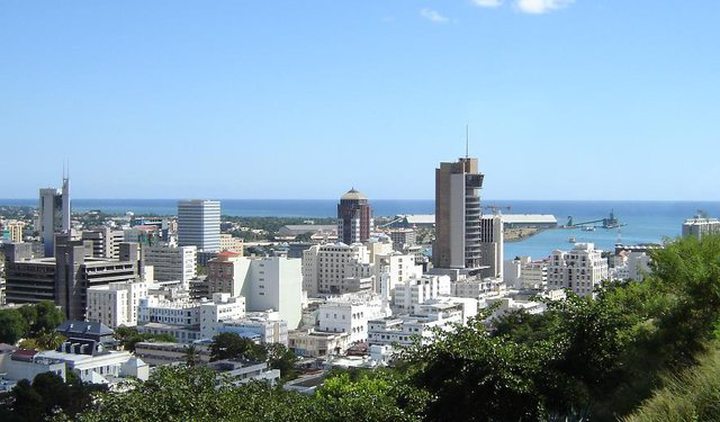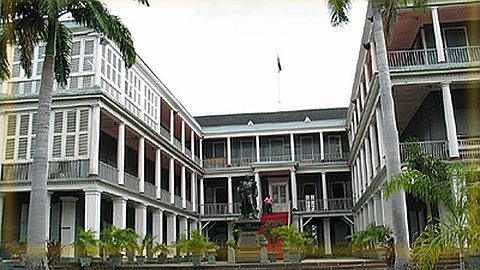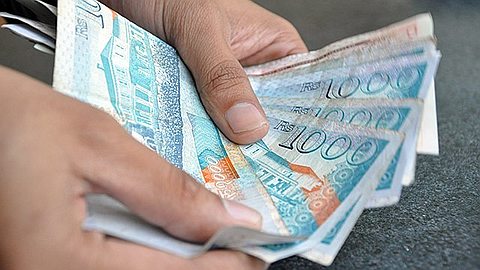Who Benefits From Chinese Investment in Mauritius?

China is in the process of establishing six special economic zones (SEZs) in Africa which will boast particularly liberal tax policies. Among the African nations selected by China for this project, the Jinfei Economic and Trade Cooperation Zone in Mauritius stands out for a number of reasons. The island has no natural resources to extract, the country does not have a cheap and readily exploitable labour force, and by Chinese standards, the nation’s small population hardly provides a significant domestic market.
Yet, Chinese enterprises are spending around $1 billion to set up an SEZ on the island a thousand miles off the coast of the African continent, and on his most recent tour of Africa, China’s president Hu Jintao ensured that Mauritius was one of the six countries he visited. Despite a scarcity of land, energy and water, the Mauritian government has displaced hundreds of farmers, offered Chinese businesses generous incentives to move into the area, and has spent millions building infrastructure in and around the zone.
What’s in it for China?
Mauritius is somewhat atypical of China’s main partners in the region and the other proposed SEZs. Rather than promising profitable material or human resources, Mauritius presents itself as an ideal gateway between Asia and Africa and could act as a regional business hub due to its market-access, stability and business climate.
The nation’s membership in the Southern African Development Community and the Common Market for Eastern and Southern Africa, as well as its multiple bilateral tax avoidance agreements give Mauritian-based firms preferential access to a number of African markets and thus hundreds of millions of consumers. It has a stable parliamentary democracy, strong institutions and a diversified economy which offer a secure commercial and political environment. The country offers one of the world’s most generous tax regimes, complete with low business and income taxes, tax-free dividends, free repatriation of profits and capital, and absence of capital gains tax. It has consistently been ranked as the top African country in terms of governance, business efficiency, and democracy.
Unlike China’s five other SEZs in Africa which offer the potential for extraction, production and manufacturing, it is intended that the Jinfei zone will eventually house the headquarters for Chinese investments in Africa. As more information surfaces, it appears that the main role of the zone will be to provide offices, hotels, apartments, recreational services, schools and medical facilities.
What’s in it for Mauritius?
In theory, SEZs can be hugely beneficial to host nations despite the liberal economic policies enjoyed by those within the zone. They can generate local employment, create a surplus of expertise and technical knowledge, engender positive links with the domestic economy and help the realisation of industrial transitions in specific sectors of the economy. If foreign firms are not in direct competition with local companies and there are efforts to encourage integration, inclusion and knowledge transfers, SEZs can be very beneficial to host countries. Indeed, Mauritius’ growth since the 1970s and its diversification from a mono-crop economy into one also based on textiles and tourism were premised on the creation of export processing zones whose tax incentives lured foreign investors.
On many levels, the Jinfei zone has similarly impressive potential benefits. The project is predicted to generate over 40,000 jobs and boost the economy through hundreds of millions of dollars' worth of investment. The industries initially proposed were also in specific sectors in which Mauritius is hoping to become a regional expert. Mauritius has been attempting to move away from its current reliance on tourism, sugar-crops, financial services and textiles into more niche and specialised industries, and the Jinfei project has been presented as a future hub for light engineering, precision works, ICT, hi-tech industries and pharmaceuticals.
Race to the bottom
However, as details emerge these proposed benefits seem increasingly tenuous, and there are suspicions that Mauritius miscalculated the concessions it offered when bidding for the Chinese SEZ.
The prudence of granting increasingly generous tax incentives to attract foreign direct investment has long been questioned by those in development circles, but it is not a race to the bottom in terms of tax breaks that is provoking the most concern. In fact, Mauritius recently rationalised its tax incentives regime downwards to increase revenue generation and in the case of the Jinfei zone refused to increase the 15% flat corporate tax rate. Instead, it is concessions made in other areas which could undermine the advantages the SEZ could bring to Mauritians.
Firstly, it has been revealed that only 10-15% of the 40,000 jobs to be created will actually go to Mauritians. Similarly, the first infrastructural phase of construction in the zone was conducted predominantly by Chinese expatriate workers, using materials imported from China and managed by Chinese contractors. The boost to local employment and the beneficial effects on the domestic economy will therefore be considerably more modest than initially hoped.
Secondly, the Mauritian government has damaged its own credibility and legitimacy in the eyes of its populace by consenting to a confidentiality agreement with Chinese businesses operating in the zone. This unprecedented move has led to suggestions that the Mauritian government has very limited information about what the projects will entail, and controversy around the project has contributed to political discontent, a climate of suspicion and allegations of corruption.
Thirdly, the more indirect benefits provided by an SEZ are also far from guaranteed. The Jinfei zone has been reserved for Chinese companies and is currently closed to local investors. But if the zone acts as an enclave, surpluses and knowledge sharing will be severely restricted. Similarly, Mauritian academics Vinaye Dey Ancharaz and Baboo Nowbutsing have raised concerns that the hallmark of previous Chinese investment in Mauritius has been a tendency by Chinese firms to protect knowledge propriety and keep trade secrets. Finally, the change in recent shift from high-tech industries to services and commercial estate has stifled hopes that Jinfei would revitalise the Mauritian economy and make it a regional hub for high-tech industries.
Race to negotiate
A lot of confusion and uncertainty hangs over the Jinfei zone in Mauritius. The benefits to Chinese firms seem fairly secure, but whether the zone can generate employment for locals, aid the diversification of the economy and compensate for the infrastructural costs the government is incurring is still yet to be determined.
Before the delayed second phase of the zone’s construction starts next year, the Mauritian government is in a position to improve Mauritius’ chances of benefiting from the project. Defined job quotas for locals, a greater use of Mauritian inputs in construction, and a commitment to maintain the advancement of those sectors the government hopes to develop must be negotiated before it is too late.





